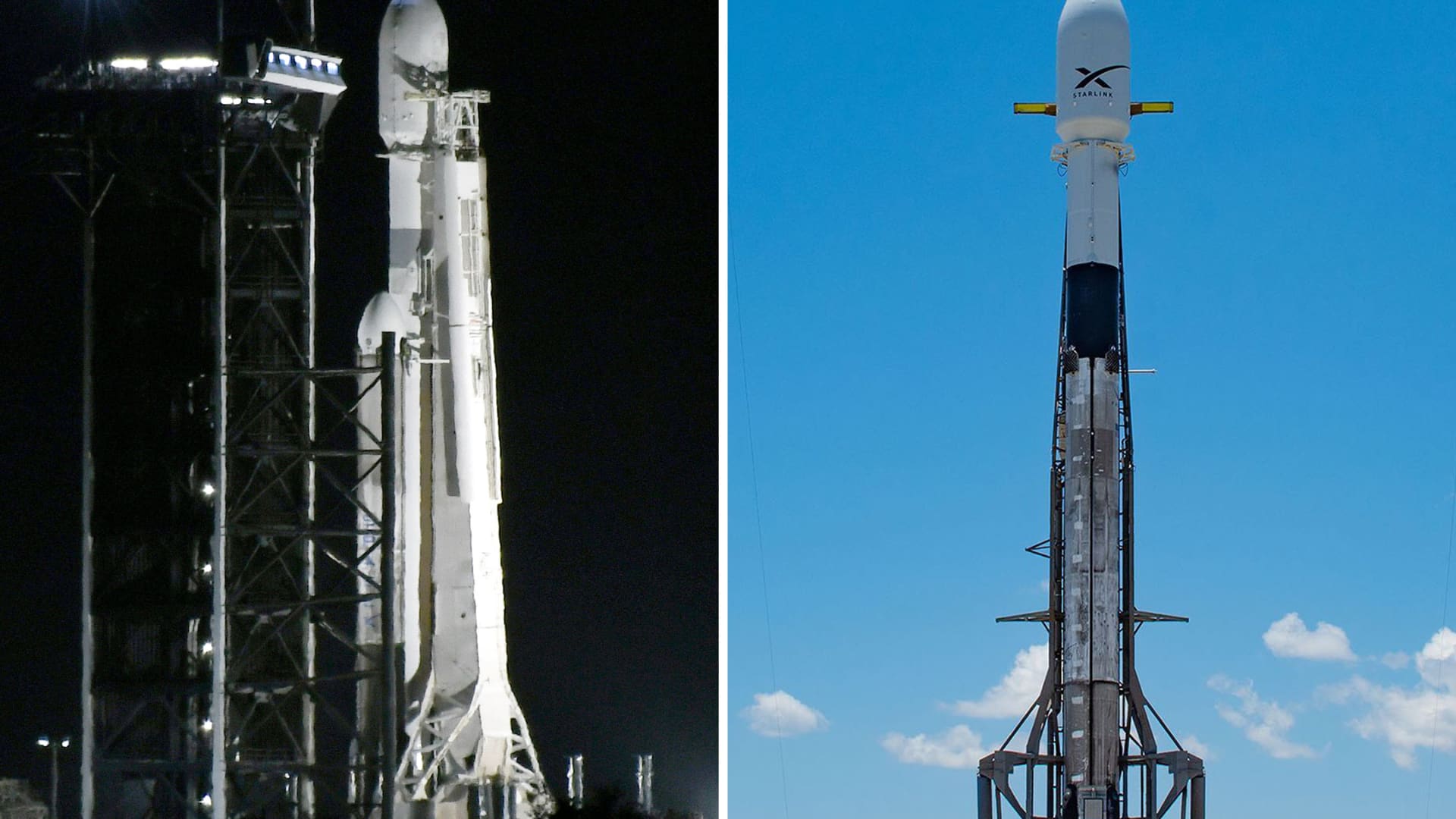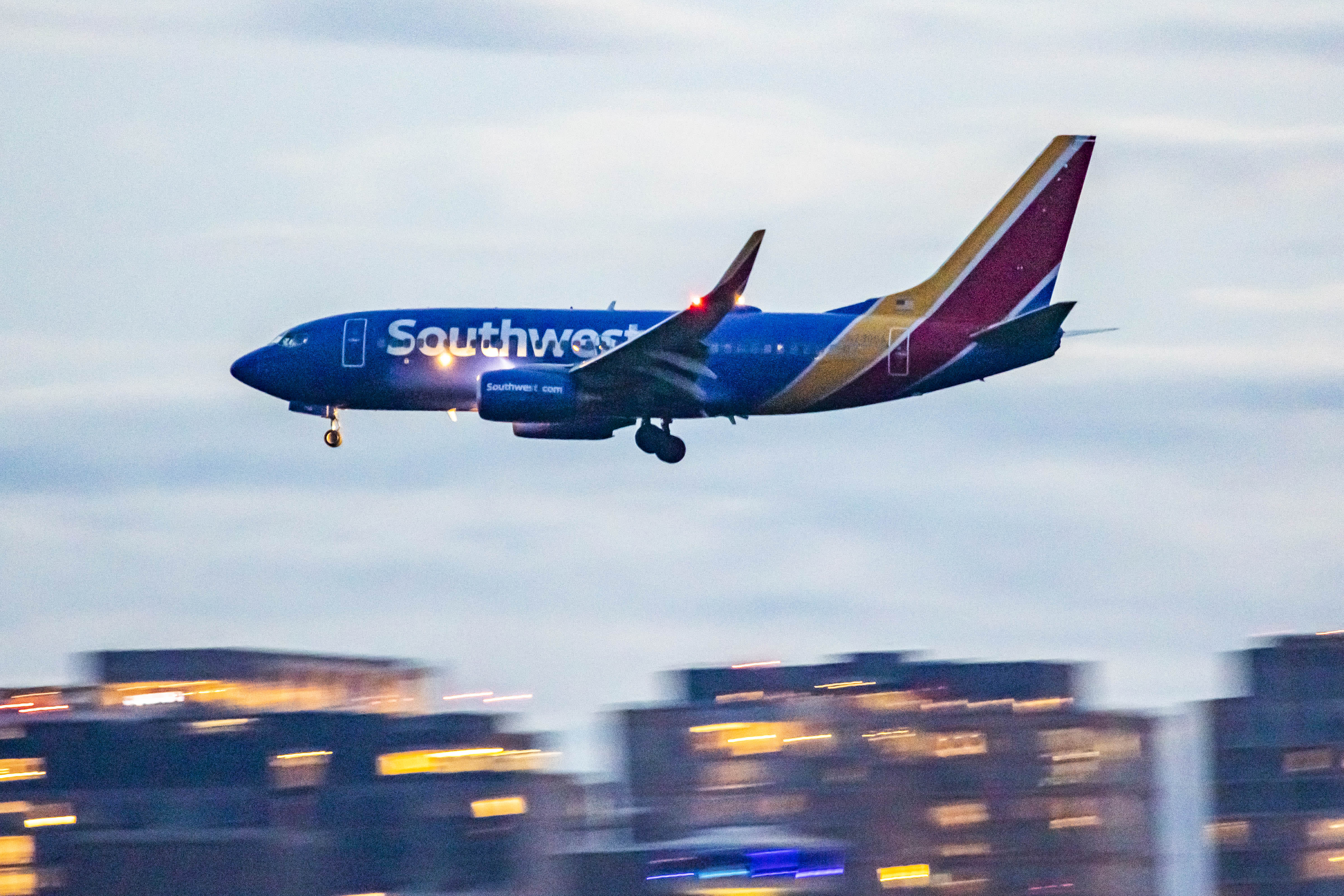SpaceX on Thursday night came close to breaking a record that’s stood for over half a century, with back-to-back launches that had been set to fly from Florida’s Space Coast.
The company is targeting 10:20 p.m. ET for the launch of its Falcon 9 rocket from the Space Force’s Space Launch Complex 40 (SLC-40), carrying Starlink satellites.
related investing news
A Falcon Heavy rocket was set to lift off a couple miles away as little as 45 minutes later. But SpaceX postponed the Falcon Heavy mission, which is to deliver the Jupiter 3 satellite for broadband provider EchoStar into orbit. The launch from Launch Complex 39A (LC-39A) at NASA’s Kennedy Space Center is now scheduled to launch on Friday evening instead.
Space Launch Delta 45 is the unit of the U.S. Space Force that manages the Eastern Range: A designated U.S. rocket range for launches from either Kennedy or Cape Canaveral.
SLD 45 noted in social media posts on Thursday that the pair of SpaceX launches could have broken a record set by the Gemini 11 mission in September 1966. That NASA mission used an Atlas-Agena D rocket and a modified Titan II rocket, which launched 1 hour, 37 minutes and 25 seconds apart.
“This could represent the shortest time between Earth to orbit launches from the Eastern Range in our written records,” SLD 45 wrote. “Follow along as we attempt to re-write the record books on the Space Coast!”
Rocket launches require that regulators clear windows of time, in part due to the increasingly crowded airspace needed for each mission.
The launches would have represented SpaceX’s 51st and 52nd this year.



